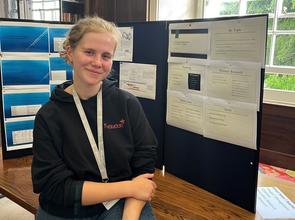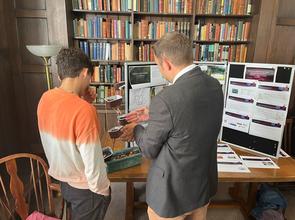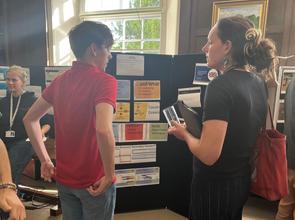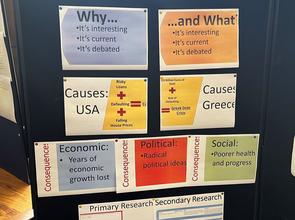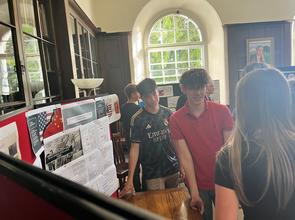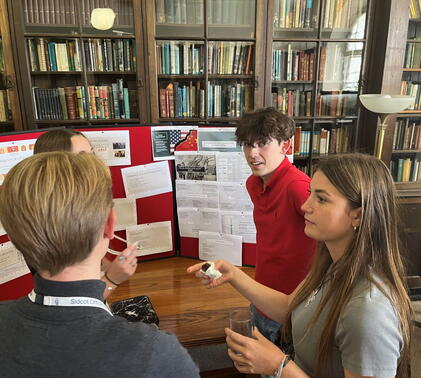
Congratulations to our EPQ students who have attained fantastic results, with 50% of those participating achieving A* or A results, and 100% achieving higher than a C result. The EPQ (Extended Project Qualification) requires students to research a topic of their choice and write a 5000 word essay on their findings. We were highly impressed with all the students, who eloquently articulated their research findings and engaged in academic debate about their topic. Here are the subjects chosen by our students to research:
| Name | Subject |
|---|---|
| Jessica B | Should anaphylactic food allergies be cured in children aged 16 and under? |
| James S | Creating a vertical garden. |
| Jack H | Analysing the USA’s motivations that led to the invasion of Iraq in 2003. |
| Emily M | Paws for effect: can animals be used as an effective treatment for mental illnesses? |
| Ottilie H | To what extent should the USA fear China? |
| Max B | Analyzing the causes and consequences of the 2008 Financial Crisis in the UK, America and Greece. |
| Shubh J | Analyzing the different methods and techniques for learning a foreign language. |
| Jamie O'D | To what extent was political negligence responsible for the escalation of the July Crisis of 1914 into the First World War? |
| Finn H | Analysing the importance of the halo safety device in Formula 1. |
| Al B | Who is the greatest Formula One Design Engineer in the history of the sport, 1950-2022? |
| Amelia S | How has the global pandemic affected development in young children? |
| George P | Should the United Kingdom become a republic? |
| Fanny B | Analysing the under representation of women in STEM. |
One successful student, Fanny, summed up her project on ‘The Under-Representation of Women in STEM’:
“Analysing the reasons for the under-representation of women in STEM is not only the title of my EPQ but also a commonly addressed topic over the last few years. Claudia Goldin won the Nobel Prize for Economics this year for her research on women's earnings and labour market participation, and much-debated laws surrounding the quantity of women in board rooms have made the headlines and led to heated discussions around gender equity and concentration, especially in STEM-related fields.
Considering that I am interested in becoming a woman in STEM, there was personal interest behind this topic and it is what eventually inspired me to pursue this. The greatest difficulty with this topic proved itself to be the sheer amount of studies, articles and opinions that exist around this issue from all kinds of political backgrounds, which I had the task of filtering through to ensure that my analysis focused on scientific evidence rather than opinion pieces.”



